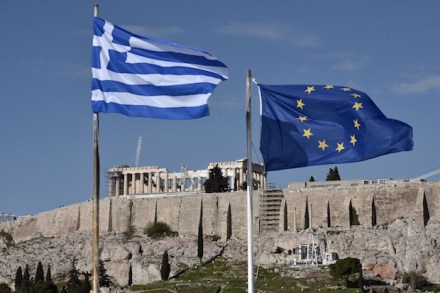Podcast: Angela Merkel’s burden, Ukip’s American flirtation and Gove’s grammar rules
This podcast is sponsored by Berry Bros, The Spectator’s house red. Germany has just as much to worry about from a Grexit as Greece. On this week’s View from 22 podcast, economist Fredrik Erixon and James Forsyth discuss this week’s Spectator cover feature on the challenges Angela Merkel faces to keep her beloved European project on the road. It also presents an opportunity for David Cameron to get a better deal for Britain during his renegotiations — can he make the most of the present situation? Freddy Gray and Owen Bennett, author of Following Farage, also discuss Ukip’s flirtation with the American right and the impact it had on the party’s election performance. What role did Farage’s ex-senior adviser Raheem Kassam



















